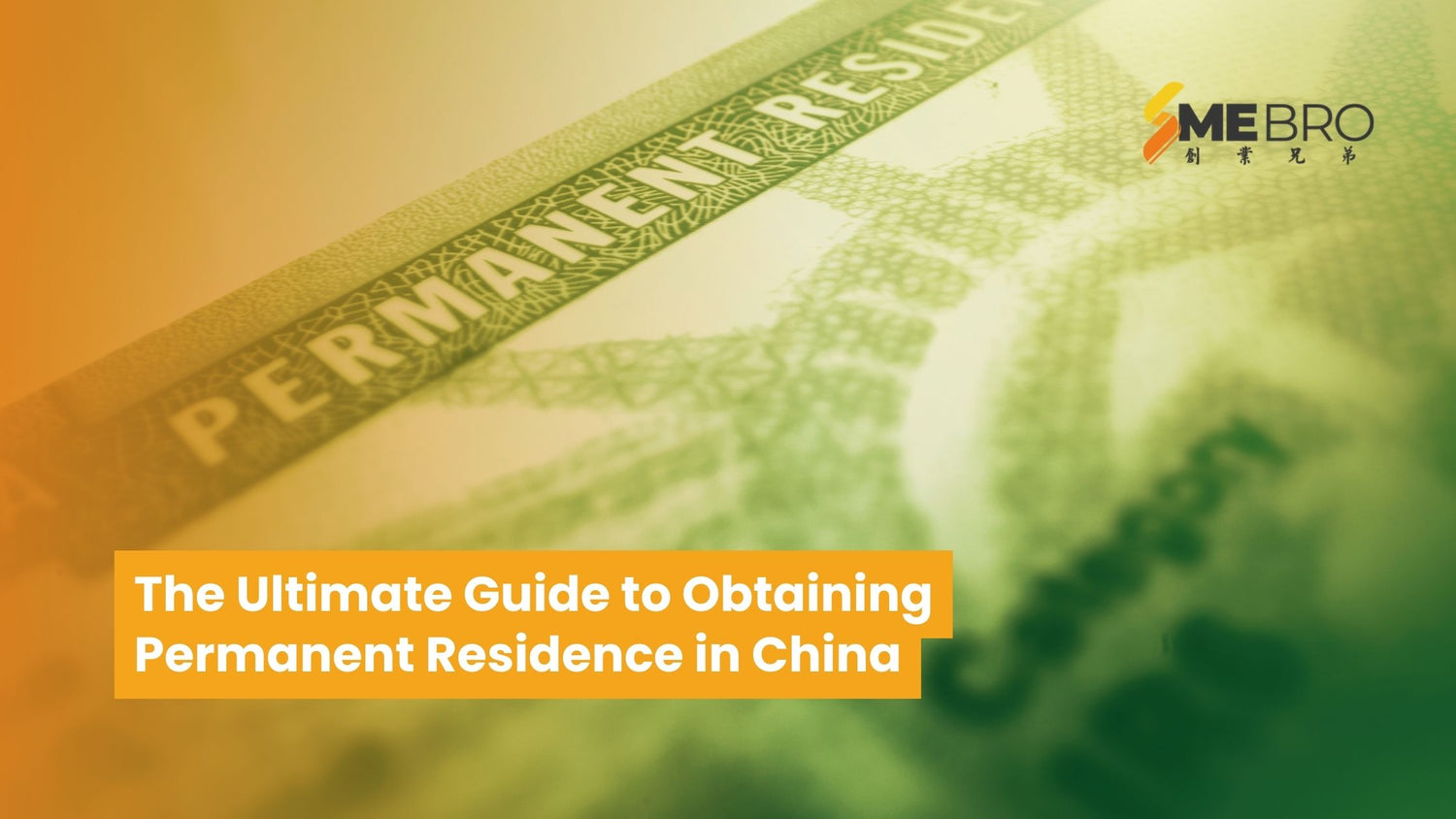As an expatriate living and thriving in China, the prospect of securing a permanent residence permit can be both enticing and daunting.
This comprehensive guide aims to demystify the process, equipping you with the knowledge and strategies to navigate the intricate labyrinth of regulations and requirements successfully.
An Overview of Permanent Residency Benefits
Obtaining permanent residency in China, often referred to as the "Green Card" or "Five-Star Card," unlocks a realm of privileges that can significantly enhance your quality of life in the country.
Beyond the obvious advantage of eliminating the need for frequent visa renewals, this coveted status bestows upon you a plethora of benefits akin to those enjoyed by Chinese citizens.
One of the most significant perks is the ability to freely enter and exit China without the hassle of visa formalities. Additionally, you can legally reside and work in the country indefinitely, opening up a world of professional opportunities.
Permanent residents also enjoy streamlined processes for employment, children's education, social security, healthcare, finance, transportation, accommodation, and property ownership.
Eligibility Criteria: Unveiling the Pathways
China's eligibility criteria for permanent residency are multifaceted, catering to various categories of foreign nationals. While the specific requirements may vary across regions, several overarching pathways exist:
1. Foreign Employees in Key Positions
This category encompasses individuals holding crucial roles in enterprises, such as general managers, deputy managers, or those with associate professor or researcher titles.
Typically, applicants must have worked continuously in China for a specified duration, maintained a substantial annual income, and paid significant individual income taxes.
2. High-End and Special-Skilled Talents
China actively seeks to attract and retain world-class talents, pioneering researchers, and highly skilled professionals who can contribute significantly to the country's economic and social development.
Recommendations from esteemed institutions or government bodies often play a pivotal role in this category.
3. Foreign Investors
Individuals who have made substantial direct investments in China, either as sole proprietors or through controlling shareholdings in companies, may qualify for permanent residency.
The investment thresholds vary based on the region and industry but typically range from $500,000 to $2 million.
4. Family Reunification
Spouses and unmarried children under 18 of Chinese citizens or existing permanent residents may be eligible for permanent residency through the family reunification pathway, subject to meeting specific criteria related to the duration of marriage, continuous residence in China, and financial stability.
5. Elderly Relatives
Foreign nationals over the age of 60 who have no direct relatives abroad and need to live with immediate family members in China may qualify for permanent residency, provided they can demonstrate stable income and accommodation.
It's important to note that each region or city may have additional eligibility categories or specific requirements tailored to their local needs and priorities.
Navigating the Application Process
The application process for permanent residency in China can be intricate and time-consuming, necessitating meticulous preparation and adherence to procedural guidelines. Here's a general overview of the steps involved:
1. Document Preparation
Gather and organize the required documents, which typically include a completed application form, a valid passport, a health certificate, criminal record clearances (both from your home country and China), proof of employment or investment, and supporting evidence specific to your eligibility category.
2. Submission and Processing
Submit the complete application package to the designated immigration service center or exit-entry administration bureau in your city of residence. The processing time can range from 90 to 180 working days, depending on the location and the complexity of your case.
3. Biometric Data Collection
As part of the application process, you may be required to provide biometric data, such as fingerprints and a digital photograph, for identification purposes.
4. Follow-up and Verification
The authorities may conduct additional investigations or request supplementary documentation to verify the information provided in your application.
5. Approval and Issuance
If your application is approved, you will receive a Permanent Residence Permit, often referred to as the "Green Card" or "Five-Star Card," which serves as your official identification document in China.

It's crucial to note that the application process can be complex and may involve navigating intricate bureaucratic procedures. Seeking guidance from experienced professionals or legal advisors can significantly increase your chances of success and mitigate potential roadblocks.
Regional Variations and Special Considerations
China's permanent residency policies and requirements can vary considerably across different regions and cities. Major metropolitan areas like Shanghai, Beijing, and Guangdong province often implement additional measures to attract and retain foreign talent, expanding eligibility criteria and streamlining application processes.
For instance, Shanghai has introduced 13 distinct categories of eligible applicants, including foreign employees, high-end talents, investors, and family members of existing permanent residents or Chinese citizens.
The latest changes in visas for foreigners to China
The city has also shortened the initial application processing time and implemented measures to facilitate the process for specific groups, such as expatriates with Ph.D. degrees or those working in designated innovation zones.
Beijing and Guangdong province have similarly tailored their policies to cater to their respective economic and talent acquisition goals, offering unique advantages and considerations for potential applicants.
It's crucial to familiarize yourself with the specific regulations and requirements of the region or city where you intend to apply for permanent residency, as these can significantly impact your eligibility and the application process.
Addressing Common Concerns and Misconceptions
As with any major life decision, the pursuit of permanent residency in China may raise concerns and uncertainties. Let's address some of the most common apprehensions and dispel prevalent misconceptions:
Tax Residency and Worldwide Taxation
Many foreign nationals fear that obtaining a Chinese permanent residence permit may automatically subject them to worldwide taxation in China. However, this is not the case.
Your tax residency status in China is primarily determined by factors such as having a domicile in the country and the duration of your continuous residence, not solely by holding a permanent residence permit.
Revocation of Permanent Residency
While obtaining a permanent residence permit grants you significant rights and privileges, it is not an irrevocable status. Authorities reserve the right to revoke your permit if you engage in illegal activities or violate Chinese laws and regulations. Maintaining a clean record and adhering to local laws is essential to retain your permanent residency.
Impact on Existing Citizenship
Contrary to popular belief, acquiring Chinese permanent residency does not require you to relinquish your existing citizenship. You can maintain your current nationality while enjoying the benefits of long-term residency in China.
By addressing these concerns and misconceptions, you can approach the permanent residency application process with greater confidence and clarity.
In Conclusion
Obtaining permanent residence in China is a significant achievement that opens doors to a world of possibilities.
By understanding the eligibility criteria, navigating the application process, and embracing life as a permanent resident, you can build a fulfilling and prosperous future in this dynamic and culturally rich country.


![[Update] Hong Kong Accounting Standards](http://smebrother.com/cdn/shop/articles/Hong_Kong_Accounting_Standards.jpg?v=1721717241&width=2240)
